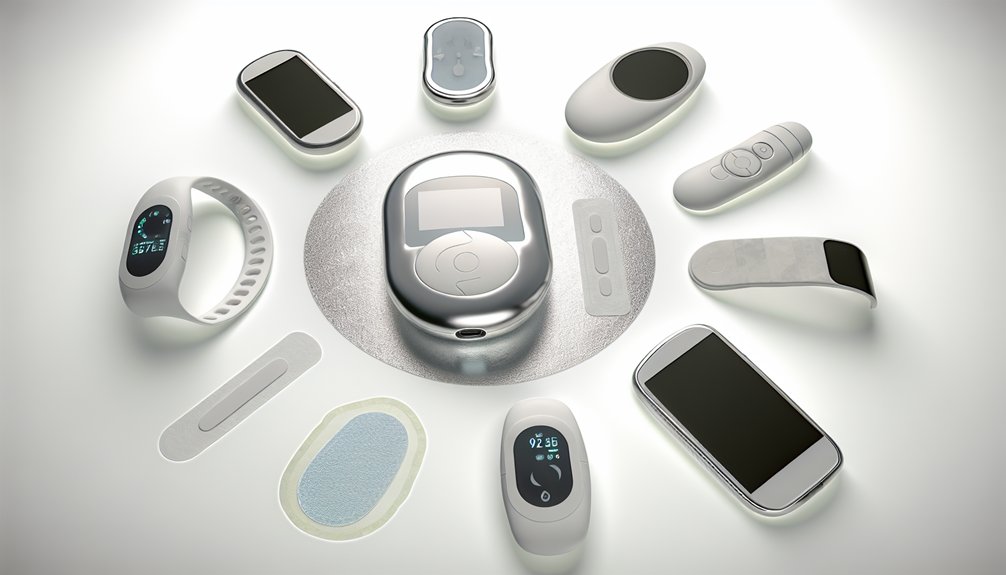Wearable technologies are truly changing the game for diabetes management. Continuous glucose monitors give real-time data, allowing users to feel empowered and in control. Smart insulin pumps automate insulin delivery, greatly reducing anxiety about blood sugar levels. Plus, fitness trackers encourage a healthier lifestyle, making the journey feel more achievable. It’s exciting to see how these innovations can improve lives. For those curious about the emotional journeys behind these tools, more stories await just ahead.

In the world of diabetes management, countless individuals are finding hope and empowerment through wearable technologies. These innovations are revolutionizing how people monitor their health and manage their condition. Continuous Glucose Monitors (CGMs), for instance, provide real-time glucose data, allowing users to make timely adjustments to their blood sugar levels. It’s a game changer, transforming diabetes care into a more personalized experience. Continuous glucose monitoring has replaced traditional finger-prick tests for many diabetics, making the process of tracking glucose levels less invasive and more convenient.
However, some users face challenges like skin irritation or the stigma of wearing a device, and many struggle with insurance coverage and costs. Additionally, it is crucial to address data privacy concerns that 79.7% of users have expressed to enhance trust in these technologies.
Some users encounter obstacles such as skin irritation, device stigma, and difficulties with insurance coverage and costs.
Meanwhile, artificial intelligence is stepping into the spotlight. AI-integrated wearables offer predictive analytics, guiding users with actionable feedback. About 84% of diabetes patients recognize the benefits of these smart devices, despite concerns about privacy and usability. Yet, when healthcare providers recommend these technologies, many are enthusiastic to adopt them, believing they can enhance their self-management.
Smart insulin pumps are another beacon of hope. They can automate insulin delivery based on CGM data, greatly reducing the risk of dangerous high or low blood sugar episodes. These devices connect with smartphone apps for easy control, simplifying daily routines. Healthcare providers often advocate for these pumps, believing they can lead to better outcomes, especially for those with type 1 diabetes. The development of bihormonal systems that deliver both insulin and glucagon promises even better blood sugar control.
Biosensors and biowearables are also contributing to this landscape. They enable noninvasive monitoring, making it easier for users to track their glucose levels without the hassle of multiple finger sticks. This technology is particularly beneficial for underserved populations, improving access to essential diabetes management tools.
Wearable fitness trackers further enhance this journey. By monitoring physical activity and sleep patterns, they encourage users to adopt healthier lifestyles. The integration of these devices creates a thorough approach to managing diabetes, fostering motivation and promoting sustained lifestyle changes.
As technology continues to evolve, the future looks bright for those maneuvering the challenges of diabetes.
